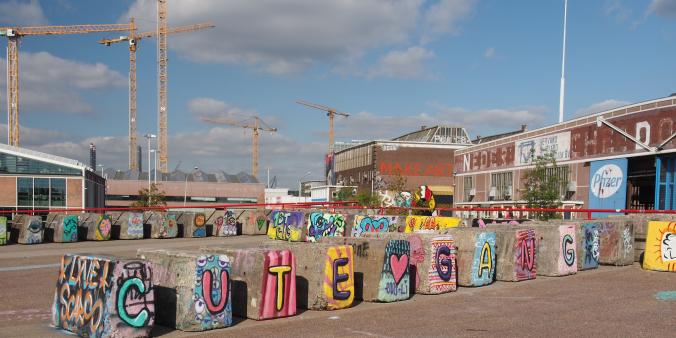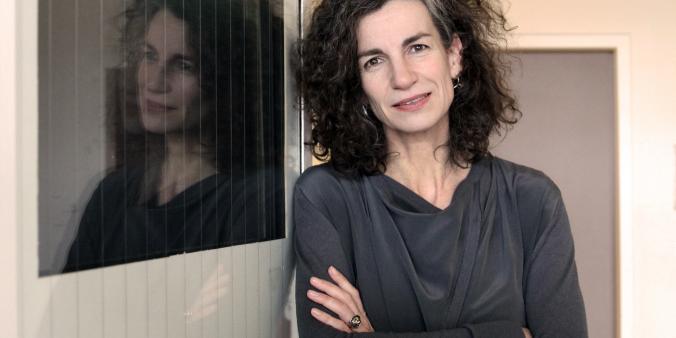
Colloquium about cosmopolitanism in the arts
On Wednesday June 24, from 11:00 to 12:30, Dr. Ginna Brock will present her paper ‘Cosmopolitanism Beyond the Polis’ during our second online colloquium. We will then have a critical discussion with Brock about the relevance of her position to the practice of artistic internationalization with stakeholders from humanities, the cultural field and cultural policy.
Is Brock’s understanding of cosmopolitanism indeed able to renew the cosmopolitan ideal, purifying it from its tendencies to rootlessness? And what are its practical implications for concrete artistic practices? Is such a renewed concept able to express the challenges of our present globalised world?
You can register for the online colloquium on June 24 via this link.
On Cosmopolitanism in the arts
By definition, the coronavirus makes no distinction between nationalities, borders, regions or municipalities. Those who spread the virus so fast globally are often to be considered cosmopolites. Meanwhile the lockdowns and travel restrictions have put emphasis on one’s belonging to a certain country, city or even home. The question of what cosmopolitanism actually entails rises.
Since Diogenes of Sinope declared: ‘I am a citizen of the world’ (kosmopolitês), the concept of cosmopolitanism is widely discussed among thinkers and politicians. Especially in the 19th century, cosmopolitanism also arose as an ideal for artistic practice, as for instance Théophile Thoré wrote in 1855:
“When the arts of all countries, with their native qualities, have become accustomed to reciprocal exchanges, the character of art will be enriched everywhere to an incalculable extent, without the genius peculiar to each nation being changed. In this way (..) a universal school is formed, familiar with the world, to which nothing human will be foreign.”
Cosmopolitanism became the ideal motivation and justification for internationalisation of the arts. International exchange was believed to raise the awareness that all people, despite their cultural and personal differences, are citizens of the same community of the world. The cultural transfers, translations and exchanges among countries would strengthen international fraternity by either creating or reaffirming existing commonalities between people from different cultures. And still today, it is often said that the intercultural exchange of the arts is the best education for this global citizenship (e.g. Appiah 2007).
However, this cosmopolitan justification of artistic internationalisation is problematised by our present globalised age. Although at first sight globalisation seems to be the ultimate realisation of the cosmopolitan ideal, establishing a ‘global village’ where we exchanges cultural expressions with our ‘neighbours’ on the other side of the world, globalisation has instead led to what is often called the ‘rootless cosmopolitanism’ of art world. This rootless and generic global world of art consists of prominent museums, wealthy galleries and international festivals that bear the same characteristics all around the globe and do not have an intrinsic connection with a specific locality. Hence the cosmopolitan ideal of global fraternity, international equality and reciprocal intercultural exchange is put under pressure in a world where art’s value is often determined by a worldwide market hierarchy, whose cultural production is traditionally oriented towards a Western centre.
If we want to prevent cosmopolitanism from becoming rootless, one could argue that our artistic practices should be rooted. In her article Cosmopolitanism beyond the polis, dr. Ginna Brock suggests rootedness originates from a sense of belonging. She advocates a reformulation of the cosmopolitan ideal in the arts by renegotiating the notion of belonging. Instead of understanding ourselves as members of the polis (city-state), which inherently leads to rootlessness when one is globally oriented, the concept of a hearth (hestia) informs us in understanding the self as a member of the human family. This concept of the hearth, as understood by the pre-socratic philosophers, is at the centre of all being. Rather than being a citizen (politês) of the world with local roots, Brock stresses that a cosmopolite is rooted by its belonging to the world. By rethinking cosmopolitanism from the hearth, Brock thus revitalizes our cosmopolitan justification of cultural internationalisation.
Dr. Ginna Brock
Ginna Brock is a lecturer in English and Creative Writing at the University of the Sunshine Coast. Her research focuses on philosophical concepts of belonging and connectivity, particularly looking at the representation of the familial in literature. Currently, Ginna has a chapter under publication entitled ‘Virtual Belonging in a Plurified World: online culture and how the formation of the digital ‘I’ impacts an individual’s sense of belonging’. This paper serves as a follow on from her ontological look at ‘Cosmopolitanism Beyond the Polis: Creative Memory Works and Reimaging the Relationship between Xenia and Hestia’ Her research also examines pedagogical practices, proposing innovative ways to deliver course material; ‘Teaching Shakespeare through Familial Identity: Exploring the Centrality of Home in Romeo and Juliet’ in Teaching Shakespeare Beyond the Centre: Australasian Perspectives (2013) and ‘Teaching the Art of Re-Creation’ (2016). Ginna is also a published playwright and poet, using her creative expression to challenge entrenched ideological narratives that create disenfranchisement and oppression.

DutchCulture’s colloquia
In 2020, DutchCulture organizes a series of colloquia to explore the future of international cultural cooperation. What does cultural internationalisation mean in 2020? Are the traditional concepts and categories still sufficient to explain the ambitions of artists and cultural institutions on the one hand, and to address the challenges of the globalised world on the other? In order to consider the nature, conditions and consequences of cultural exchange, DutchCulture explores innovative research in the field of cultural internationalisation in a series of colloquia together with stakeholders from humanities, the cultural field and cultural policy. In this way, DutchCulture wants to use its expertise and network to contribute to knowledge development around supra-sectoral issues.









